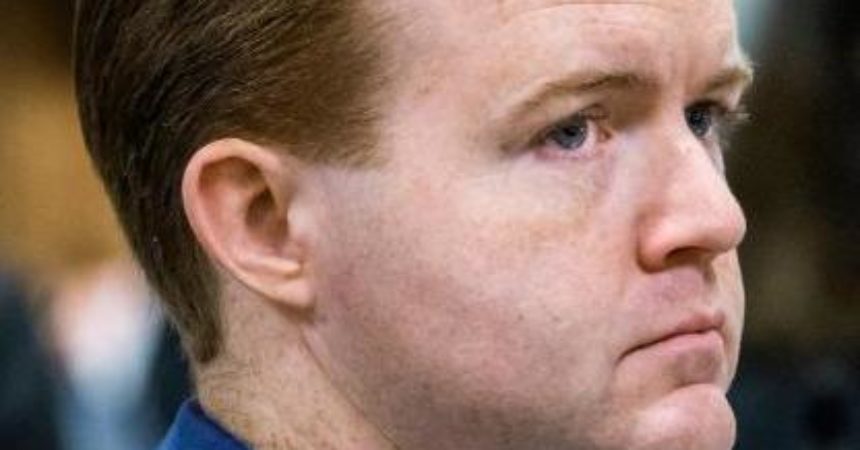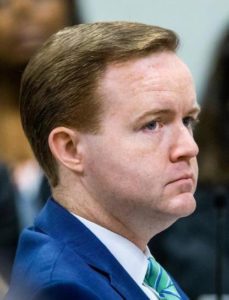
House, Senate seek to curb prison guard turnover
By Ana Ceballos
News Service of Florida
House and Senate criminal-justice budget writers said last Tuesday they want to commit money to a pilot program that Florida’s top prisons official says will help address the high turnover rate of correctional officers.
The pilot program would move one-third of Florida’s prisons from 12-hour shifts to 8.5-hour workdays in an effort to address worker fatigue, Corrections Secretary Mark Inch has told lawmakers.

Clay Yarborough, R-Jacksonville, who is House Justice Appropriations Chairman, said a pilot program for adjusting Corrections’ staff hours was a “big thing” in the criminal justice budget.
Photo special to the Outlook
Making the change would require the state to hire 292 full-time officers, which would cost taxpayers $29 million, according to a budget request from the Department of Corrections.
The Senate proposal would fully fund the program, while the House’s budget proposal would provide $13.6 million for the change. That would allow hiring 174 employees and moving one-fifth of prisons to the 8.5-hour shifts, according to the House proposal.
House Justice Appropriations Chairman Clay Yarborough, R-Jacksonville, said the amount provided for the pilot program was a “big thing” in the criminal justice budget.
“Not just because of the heavy dollar amount, but the fact that we can try to help some of these corrections officers to not be so worn out and fatigued,” Yarborough told The News Service of Florida in an interview after the House panel rolled out the budget proposal.
As the House and Senate prepare to negotiate a final spending plan in March for the 2020-2021 fiscal year, leaders will iron out the difference in proposed funding for the pilot program.
Senate Criminal and Civil Justice Appropriations Chairman Jeff Brandes, R-St. Petersburg, said the Senate is also looking at funding a separate initiative that would give prison guards salary increases.
DeSantis has asked lawmakers to fund a $60 million retention-pay plan that would give corrections officers increases of $1,500 at two years of service and $2,500 at five years of service.
The House and Senate budget proposals do not include funding for the pay initiative, but Brandes said the Senate is working to provide money for that issue.
“We are looking at getting substantial dollars to try to address the current gaps,” Brandes told the News Service on after his committee unveiled the budget proposal.
Yarborough was coy about the House’s intentions on the pay initiative, saying “more could come on that, but at this point, (no funding) is what we have today.”
A week before the start of the 2020 legislative session, House Speaker Jose Oliva said in a radio interview that his chamber would be looking at a “notable increase” for corrections staff in the upcoming state budget.
“This is an area that this year, we are looking to have a notable increase because it is important and it is needed,” Oliva said during an interview on the Preston Scott show on WFLA radio in Tallahassee.
Senate President Bill Galvano also told the News Service before the session that he would like to see more money spent on Florida’s crumbling prison facilities, including to address a lack of air conditioning.
“It’s not a popular thing, so that’s why it doesn’t often get the attention financially that it should. But it’s really about the big picture, and it goes hand in hand with some of the criminal justice reforms that are being discussed,” Galvano said during a December interview.
In sultry Florida, only 18 of the state’s 50 prisons have air conditioning in housing areas. In lieu of centralized air conditioning, some facilities use fans or exhaust systems to cool down the inmates and corrections workers.
The Senate is proposing $8 million more for repairs, renovations and improvements to prisons in the upcoming fiscal year.
Yarborough said the House is not providing additional funding for such work but said he would support doing more on it.
In addition to those issues, Brandes said the Senate would provide $1.8 million to hire 34 new “wellness specialists” to work as mentors for inmates, in an effort to address inmate “idleness”
“Frankly, we are just trying to move away from warehousing toward actual corrections,” he added.







